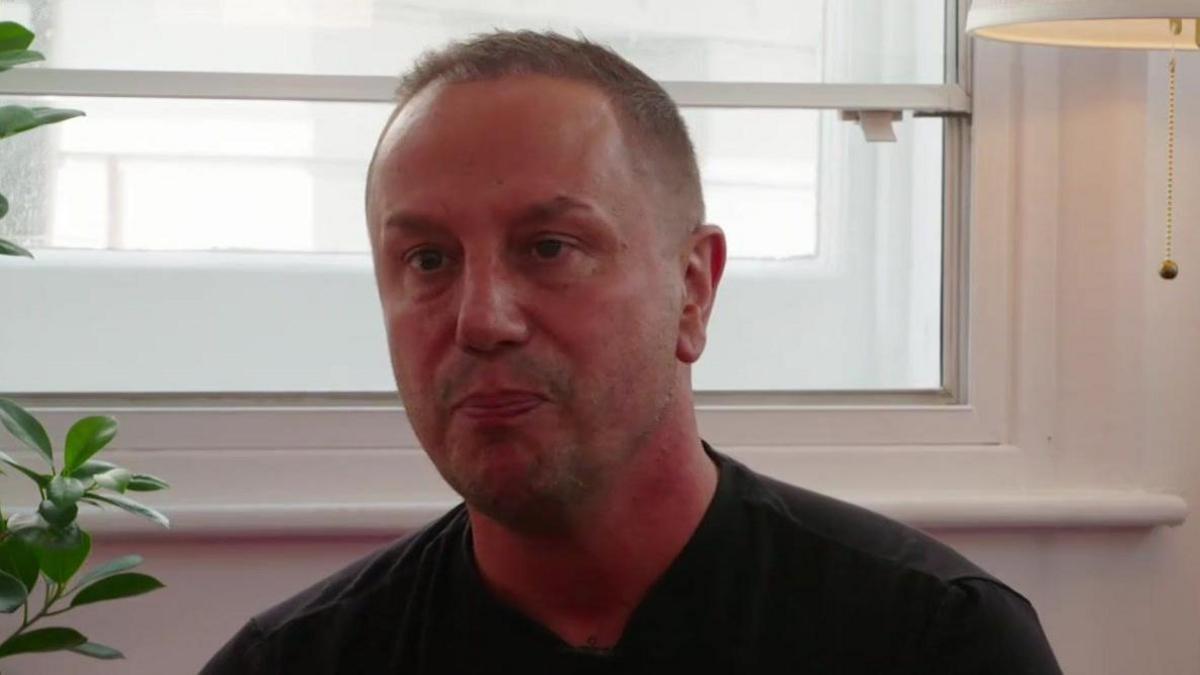Met investigating 'tens of grooming gang cases'
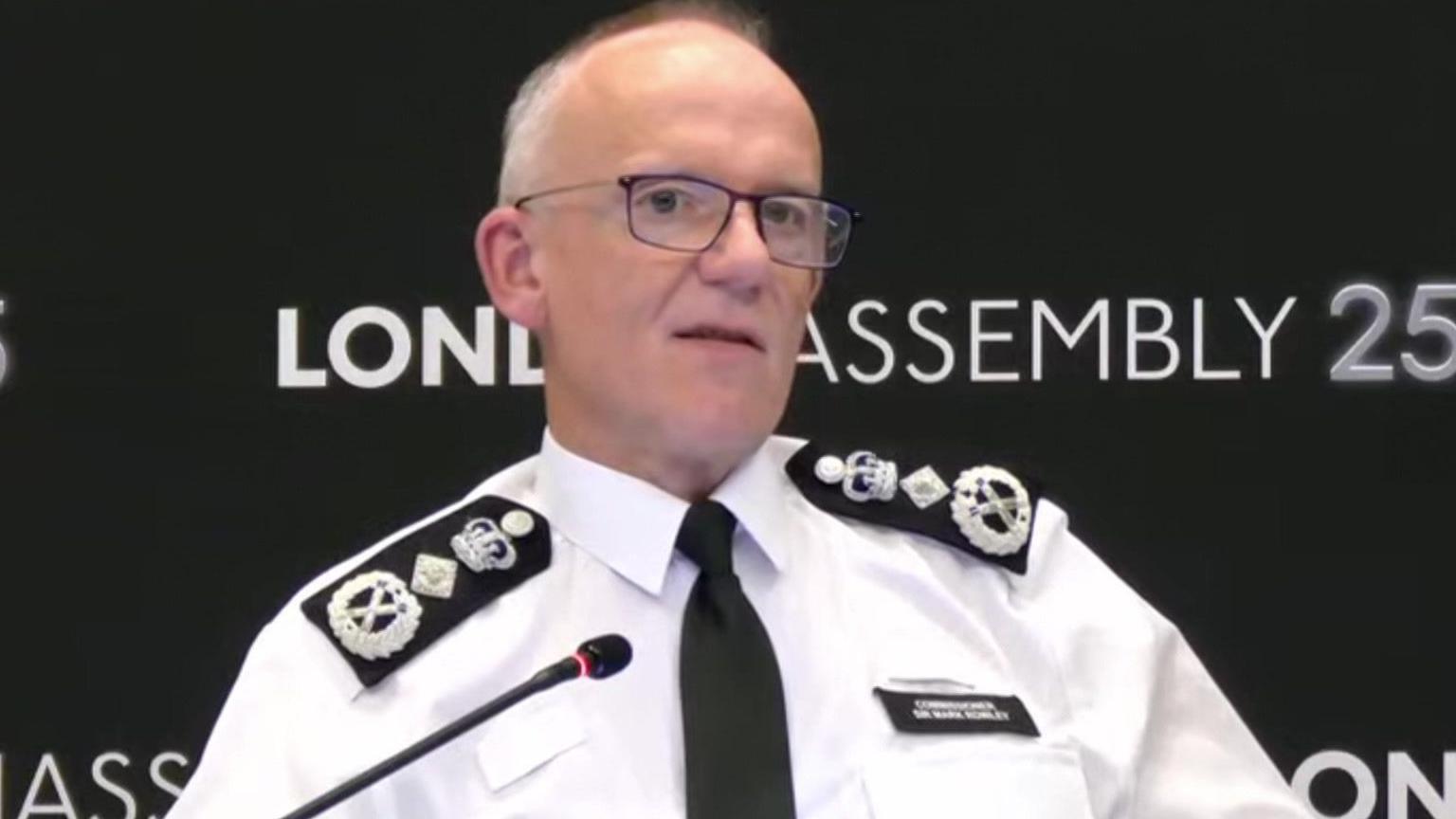
Sir Mark told the assembly said recorded abuse falls into various categories beyond just "grooming gangs"
- Published
The Metropolitan Police is investigating "tens" of group-based child sexual abuse cases involving what could be described as grooming gangs, the force's commissioner has said.
An initial data search identified around 9,000 historic cases that might fall under the broad national criteria, but after reviewing 2,200 of them only about 1,200 remained in scope, Sir Mark Rowley told the London Assembly.
The commissioner warned against using "grooming gangs" as a catch-all term because offending includes abuse within families, in institutions, between peers and online.
He said the ethnicities of suspects varied and are "reflective of the diversity we see in the city".
During Thursday's meeting, the police commissioner set out details of a national review of child exploitation cases, which has prompted recent political debate.
Sir Mark said a data search had initially identified about 9,000 historic cases in London that might fall under a national definition of group-based sexual offending, which includes any case with two or more suspects and at least one victim.
He also said that figure had been widely misinterpreted as 9,000 grooming gang cases and had led to "unbalanced reporting".
He said the definition used by the national audit was far broader than the public understanding of grooming gangs and covered intra-familial offending, institutional abuse, peer-on-peer cases and online exploitation.
'Simplistic analysis'
He told the assembly that after reviewing 2,200 of the 9,000 cases, around 1,200 remained in scope and that the number would continue to fall as the work progressed.
The commissioner said that once the initial assessment was complete, the Met expected "maybe 2,000 or 3,000 cases" to be considered for possible reinvestigation, but stressed this would still cover a wide mix of offending types, not solely grooming gangs.
"We do not see the typology reported elsewhere where there have been cases of offending committed by groups of Pakistani men on white British children being the sole or majority case," added Sir Mark.
He also said the Met recorded around 2,000 sexual offences a month, about half of which involved child sexual abuse, and warned that managing current cases alongside historic ones would require extra funding and specialist officers.
"It is important for us to use precise language and consider its impact on victims and public understanding. There is too much ready reach to simplistic analysis which risks misleading communities," he said.
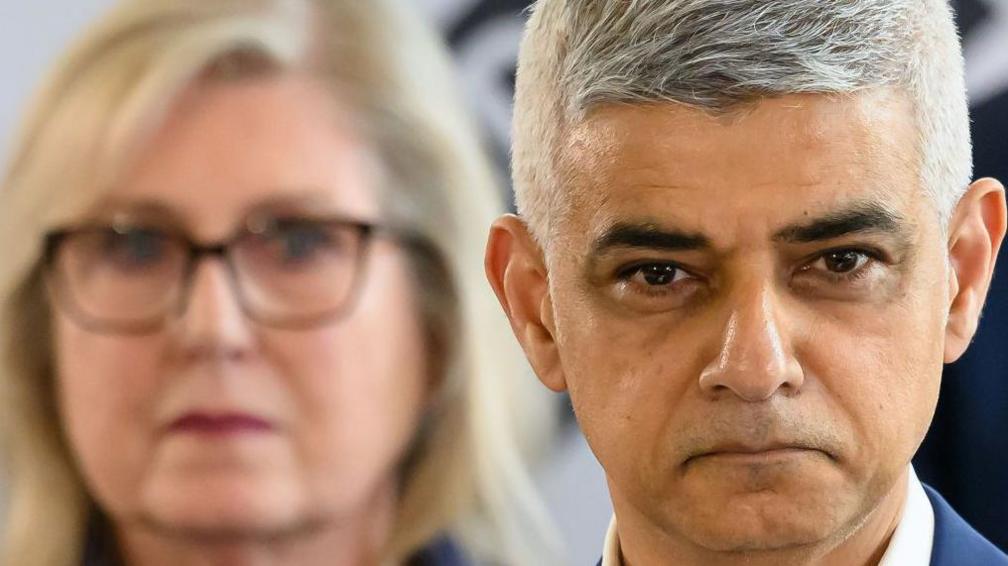
Sir Sadiq Khan defended his record on supporting victims and survivors of abuse
Sir Mark's comments came during a meeting in which London Mayor Sir Sadiq Khan was accused of "taking the mickey" out of victims after previously saying there was "no indication of grooming gangs" operating in the capital.
Susan Hall, Conservative group leader, said: "In January, I asked if we had grooming gangs in London. You dismissed my question by pretending you didn't know what I meant."
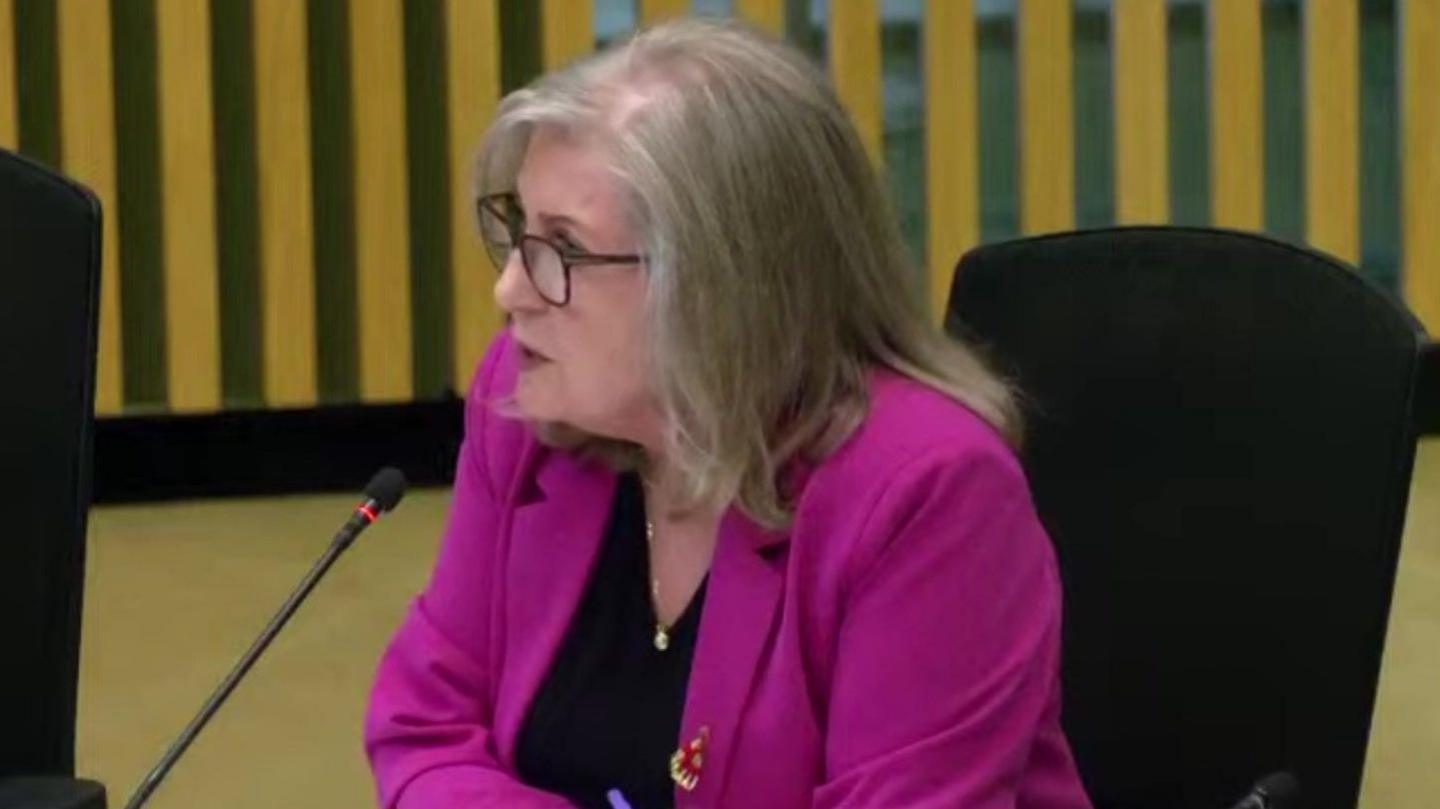
Susan Hall accused the mayor of previously dismissing victims of grooming gangs
Sir Sadiq responded by clarifying "what is meant by grooming gangs", according to the national inquiry announced by Prime Minister Sir Keir Starmer in June, and outlined the support provided to victims.
The mayor told the assembly that London had "issues in relation to child sexual exploitation" and "child sexual abuse", but that these cases were different to those seen elsewhere in England.
"I've led efforts to strengthen the protection of children and those exploited by abuse and exploitation," he said.
Listen to the best of BBC Radio London on Sounds and follow BBC London on Facebook, external, X, external and Instagram, external. Send your story ideas to hello.bbclondon@bbc.co.uk, external
- Published27 October
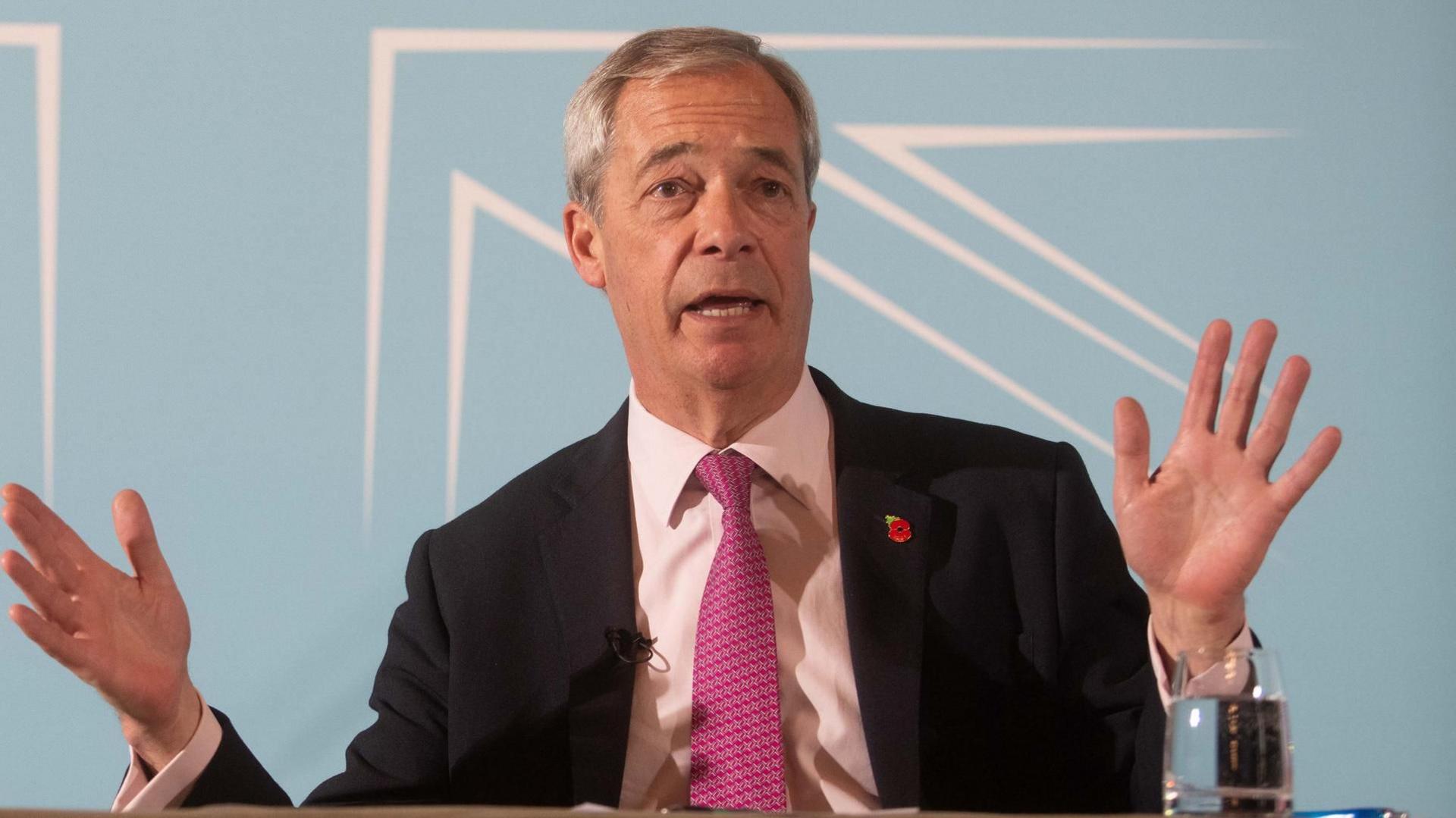
- Published25 October
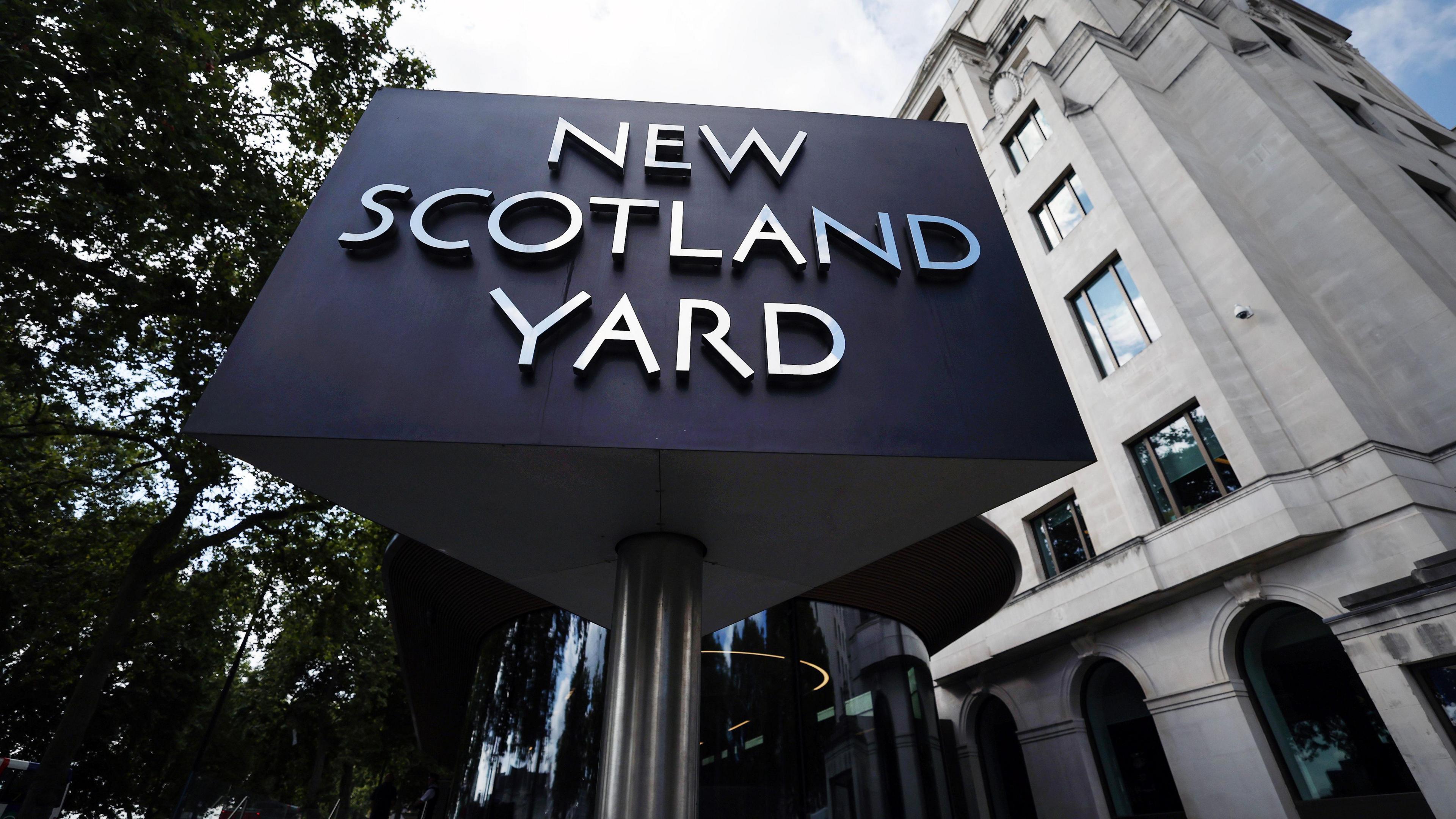
- Published6 July
